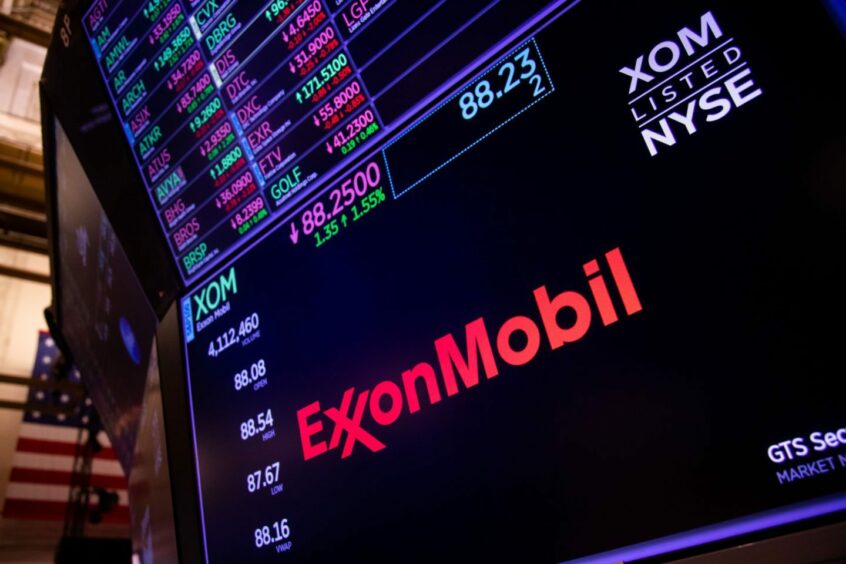
Exxon Mobil Corp. is close to a $58 billion deal to buy Pioneer Natural Resources Co., underpinning a bet that oil and gas will remain central to the world’s energy mix for decades no matter what path nations take toward a lower-carbon future.
Exxon is in talks to pay more than $250 a share for the Irving, Texas-based shale producer, according to a person familiar with the matter.
An all-stock deal could be announced as soon as Wednesday, said people familiar with the matter, who asked to not be identified because it isn’t public.
A final agreement hasn’t been reached and the terms could change or talks could still end without a deal, the people said. Representatives for Exxon and Pioneer declined to comment.
An agreement at $250 a share would be a 16% premium to Pioneer’s closing price of $214.96 on Thursday, before reports emerged that the two companies were in talks.
That would value Pioneer at least $58 billion, based on its outstanding share count, according to data compiled by Bloomberg.
The deal would be the largest corporate takeover announced globally this year and Exxon’s biggest acquisition since merging with Mobil Corp. in 1999.
Big strategic bets with the potential to shape the future of the world’s energy system have strong precedent at Exxon, which has survived wars, nationalization and public outcry throughout its 140-year history.
A combination would unite two of the biggest acreage holders in the Permian Basin of Texas and New Mexico, making Exxon far and away the formation’s dominant oil producer.
The region is the most prolific oil patch in the US, with a broad inventory of yet-to-be-drilled sites that could be quickly brought online to make Exxon more nimble at keeping pace with global demand.
While the US shale boom has been driven by independent producers like Pioneer, many of those firms didn’t survive the multiple downturns of the past decade.
Now that the energy transition is making medium-term oil demand so uncertain, shale’s flexibility is an attractive proposition for companies like Exxon.
A Pioneer sale may spark similar interest in shale producers from companies with strong balance sheets, like Chevron Corp. or Occidental Petroleum Corp., according to analysts at Bloomberg Intelligence.
Pioneer rose 0.8% to close at $237.41 in New York trading Tuesday, giving the company a market value of about $55 billion.
The shares climbed as much as 3% more after the close of regular trading. Exxon fell 0.4% to $110.45, for a market value of about $442 billion.
Exxon has been hunting for big acquisitions in the Permian Basin for years, but the timing was never quite right.
The company’s finances took a hit during the coronavirus pandemic as oil prices plunged and as it ramped up capital spending on large global projects, forcing Exxon to borrow billions of dollars to pay dividends.
Then the company pulled back on spending, cut costs and got a huge boost as oil prices surged following Russia’s invasion of Ukraine.
Its profit jumped to a record $59 billion in 2022, and the stock gained more than 80% last year, providing the financial firepower for a potentially era-defining deal with Pioneer.
Attention has been focused on the future of Pioneer since founder and Chief Executive Officer Scott Sheffield said in April that he planned to retire at year’s end.
Sheffield has worked in the Permian since the 1970s and is credited as an architect of the shale boom that made the US an oil and natural gas powerhouse.
Recommended for you
